Assemblog: February 15, 2013
Published on February 15th, 2013 in: Assemblog, Film Festivals, Horror, Movies, Music, Science and Technology, Science Fiction, The Internets, Trailers |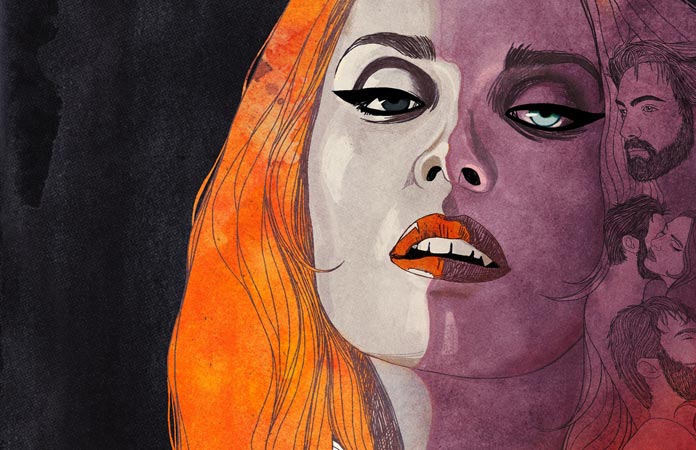
Kiss of the Damned (full poster)
New this week on Popshifter: I reveal a behind-the-scenes video on the making of the upcoming What The Brothers Sang album by Dawn McCarthy and Bonnie “Prince” Billy and weigh in on Suede’s new single and video; Paul praises Spotify but has stern advice for Prince; Cait has the scoop on the terrific new Omnivore Recordings George Jones United Artists singles compilation; and Elizabeth reassures us we can still call television “television.”
TV Is Dead, Long Live TV: Why We Should Still Call It Television
Published on February 15th, 2013 in: Science and Technology, Streaming, The Internets, TV, TV Is Dead Long Live TV |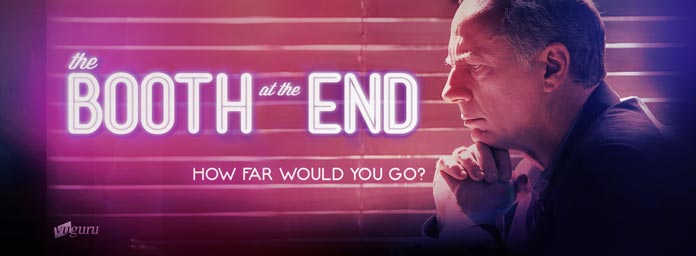
I think the moral lesson behind The Booth at the End is: Don’t over think things. It’s also worth noting that while neon signs still use tubes to convey messages, this is no longer true of modern TVs.
Two weeks ago I wrote a piece acknowledging Netflix as our new media overlords for the occasion of the premiere of House of Cards. The success of the first independent series produced by Netflix, along with the continued success enjoyed by web series and Hulu-produced content, has some scratching their heads about what to call this new viewing experience. I have an answer to this question: when enjoying The Booth at the End on Hulu or MyMusic on YouTube, one is watching television.
This search for another name for what we are doing while we enjoy Very Mary Kate or Husbands is pointless. That many consume this entertainment via a screen on what we now call a computer rather than on what we have traditionally called a television is immaterial.
The Age of Permanent Prosperity: Spotify is the Greatest Thing
Published on February 12th, 2013 in: Current Faves, Music, Science and Technology, Streaming, The Internets |By Paul Casey
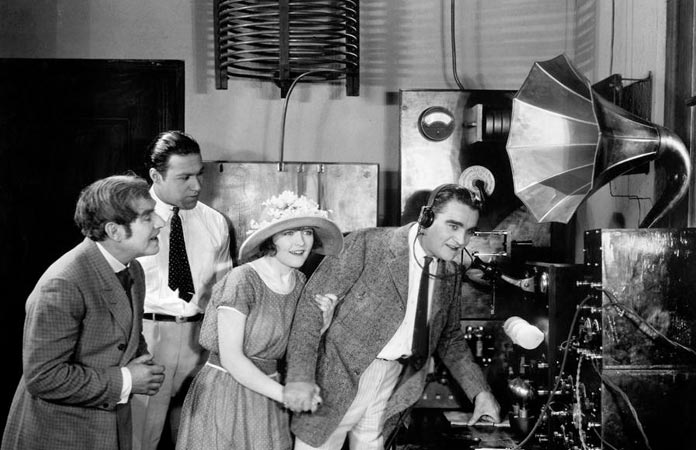
When I had a talk before about why compilations needed to die, I was concerned about their tendency to solidify tastes rather than challenge them. I would stick to a handful of albums and obsess about arranging them, producing classy covers, and finding people to absorb my musical missives in good humor. Even though I have made attempts every few years to shake myself up and haul in new music to replace old, it was still such a costly exercise that I was rarely satisfied.
For those who have had Spotify available to them for several years, please forgive me for pointing out the obvious: It is possibly the greatest thing ever. Here in Ireland, being a largely backwards outfit, we have only recently been given the chance to put an ear towards such a severe streaming catalogue.
Ten euro a month is nothing for the quality of the service provided. Twice as much could be charged and it would still be an obscene bargain, especially for those humans who are still attached to the idea that financial recompense is a fair deal for created things. There are problems and quirks with Spotify of course, and a lingering question over whether this kind of subscription service can ever provide a living for artists. Seeing as the Internet has made solipsism the thing with music, I will ignore these for the moment and expand on how I have personally benefited from this service.
Assemblog: December 7, 2012
Published on December 7th, 2012 in: Assemblog, Canadian Content, Feminism, Movies, Music, Science and Technology, Streaming, The Internets |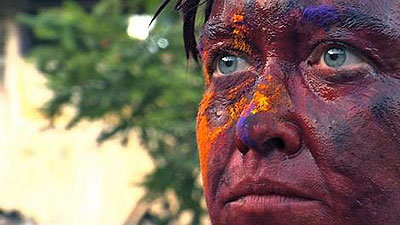
Despite The Gods
New this week on Popshifter: Danny is not very fond of the film 360, out now on home video; Chelsea is over the moon about the new Big Dipper album, Big Dipper Crashes on the Platinum Planet (and shares their new video for “Robert Pollard”); Lisa voices unpopular opinions about It’s A Wonderful Life; Cait raves about the new white vinyl 7″ from Concrete Blonde; I express admiration and frustration for Take This Waltz; and Elizabeth talks about Community, Disney, Netflix & Verizon in a new installment of “TV Is Dead, Long Live TV.”
TV Is Dead, Long Live TV: December 7, 2012
Published on December 7th, 2012 in: Media, Science and Technology, Streaming, The Internets, TV, TV Is Dead Long Live TV |By Elizabeth Keathley
In his keynote speech to the XOXO Festival this past September, Dan Harmon, creator of Community, had this to say about the death of television:
“You don’t want to monetize the Internet. You’re having fun right now because it can’t be monetized. You’re getting away with murder on the Internet. You’re doing wonderful Rodenberry-ish things on the Internet because it has eschewed money and all the crappy people are back on TV wasting everyone’s time while Rome burns to the ground.”
I disagree with Harmon about several things he said in this speech, but I’ll start with the money thing because it’s so easy to disprove.
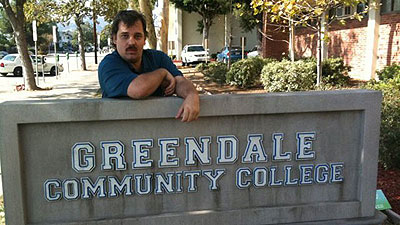
Dan Harmon created a great television show, but now says TV is dead.
A video of his speech is at the end of this article.
Assemblog: November 30, 2012
Published on November 30th, 2012 in: Assemblog, Copyright/Piracy, Holidays, Horror, Music, The Internets, Trailers |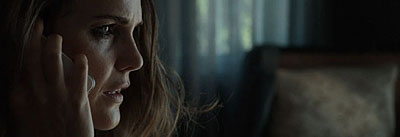
Dark Skies
New this week on Popshifter: I give thanks and praise to “Echoes From The Sleep Room,” the last lecture in The Black Museum’s series and explain how shaking off the movie Excision is a lot harder than I thought it would be.
Assemblog: November 16, 2012
Published on November 16th, 2012 in: Assemblog, Critics/Criticism, Feminism, Movies, Science and Technology, The Internets, Toys and Collectibles, Trailers, TV |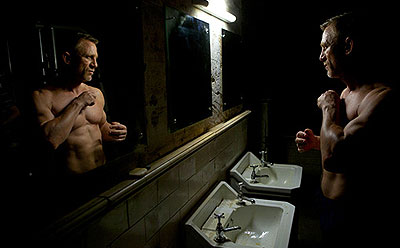
Skyfall
New this week on Popshifter: Cait has the scoop on the newest Marshall Crenshaw single and subscription service, reviews the reissue of 1985’s Romance from David Cassidy, and is delighted by The Edie Adams Christmas Album; I have good things to say about School of Seven Bells’s new EP Put Your Sad Down as well as The Barrens on Blu-Ray; and Elizabeth outlines your options if you’re thinking of ditching your cable TV subscription.
TV Is Dead, Long Live TV: November 16, 2012 – A Guide To Cutting The Cord
Published on November 16th, 2012 in: Science and Technology, Streaming, The Internets, TV, TV Is Dead Long Live TV |The latest in our ongoing series on the life and death of linear television, a.k.a. old-style appointment television, TV that only moves forward in time. For previous installments, go here.
This installment will outline your best options for cutting the cord to your cable or satellite subscription.
Subscribe To Marshall Crenshaw: New Single Out On November 23
Published on November 12th, 2012 in: Current Faves, Music, Music Reviews, Reviews, The Internets |By Cait Brennan
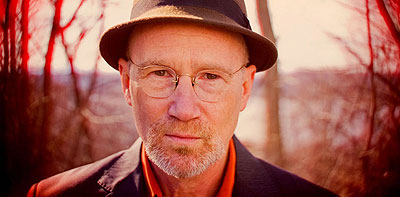
It’s hard to believe that Marshall Crenshaw’s tuneful, songs have been with us for three decades, but amazingly, 2012 marks the 30th anniversary of his acclaimed, self-titled 1982 debut. Three decades, five presidents, and thirteen albums later, he’s still going strong, not only with his own music, but his radio show, a book, film music, and vital compilation work as well. (It’s not an overstatement to say that the Crenshaw-helmed Hillbilly Music . . . Thank God!, a 24-track compilation of rockabilly and country sides by artists from Buck Owens to Rose Maddox to Hank Thompson to the Louvin Brothers, saved my soul and the souls of every living, breathing human being who heard it. It’s not too late for you, brother, get yourself a copy.)
Writing and performing new music is still where his heart’s at, though, and like so many artists in the still-evolving, post-record-industry-Armageddon landscape, Crenshaw turned to Kickstarter to fund a new way of getting his songs to his fans. After blowing past his goal with a cool $33,000, Crenshaw is launching a subscription EP series, enabling him to get new music to his fans in a cool way. Over the next two years, Crenshaw will release six exclusive three-song 10-inch, 45-rpm vinyl EPs, along with a download card for digital versions of the tracks.
The opener, which debuts November 23, features the brand-new Crenshaw tune “I Don’t See You Laughing Now,” combining Crenshaw’s relentless knack for melody with a withering character portrait of somebody who clearly had it coming. “It must be hell to realize you fell for your own lies,” sings Crenshaw, dismantling his subject line by line and rubbing it in with some gorgeous harmonies and the fine playing of Andy York on guitar and the brilliant Graham Maby on bass.
Track two features Crenshaw and alt-country sensations the Bottle Rockets on a live alted-up version of the Crenshaw gem “There She Goes Again,” originally on Crenshaw’s 1982 album.
A weird and wonderful cover of The Move’s post-apocalyptic 1971 classic “No Time” rounds out the set. Recorded with Glen Burtnik (who starred as Paul McCartney in Beatlemania opposite Crenshaw’s John Lennon), “No Time” is worth the price of admission all on its own, with its rich layered harmonies, gorgeous psych-pop production, and fine mastering by engineer Greg Calbi.
“I’ve always put a great deal of care into the albums I’ve made,” Crenshaw said in a press release. “But as a listener, I’ve always been a singles guy and an individual-tracks guy. I’m looking forward to creating a steady output of music in small batches, rather than being stuck in a cave for months and stockpiling a whole bunch of music and dumping it out all at once. Now, when I finish something, I get to put it out, instead of having to wait until I’ve got 12 more.”
“I Don’t See You Laughing Now” is available November 23 from marshallcrenshaw.com. Please note: the website has been down due to issues resulting from Hurricane Sandy, so keep checking back.
TV Is Dead, Long Live TV: October 19, 2012
Published on October 19th, 2012 in: Media, Science and Technology, Streaming, The Internets, TV, TV Is Dead Long Live TV |The latest in our ongoing series on the life and death of linear television, a.k.a. old-style appointment television, TV that only moves forward in time. For previous installments, go here.
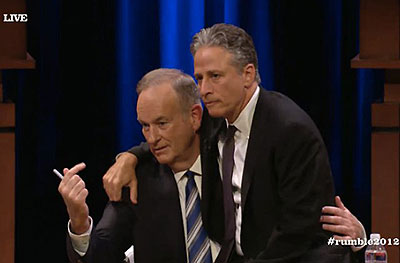
I had planned to write this week’s article on the topic of fan-produced web series, but The Rumble 2012 and the Presidential debates livestreaming are too critical to the death of linear television and the new life of Internet television to ignore. So let’s spend the next several paragraphs dissecting what has gone right, and what has gone wrong, in Internet TV over the past two weeks.